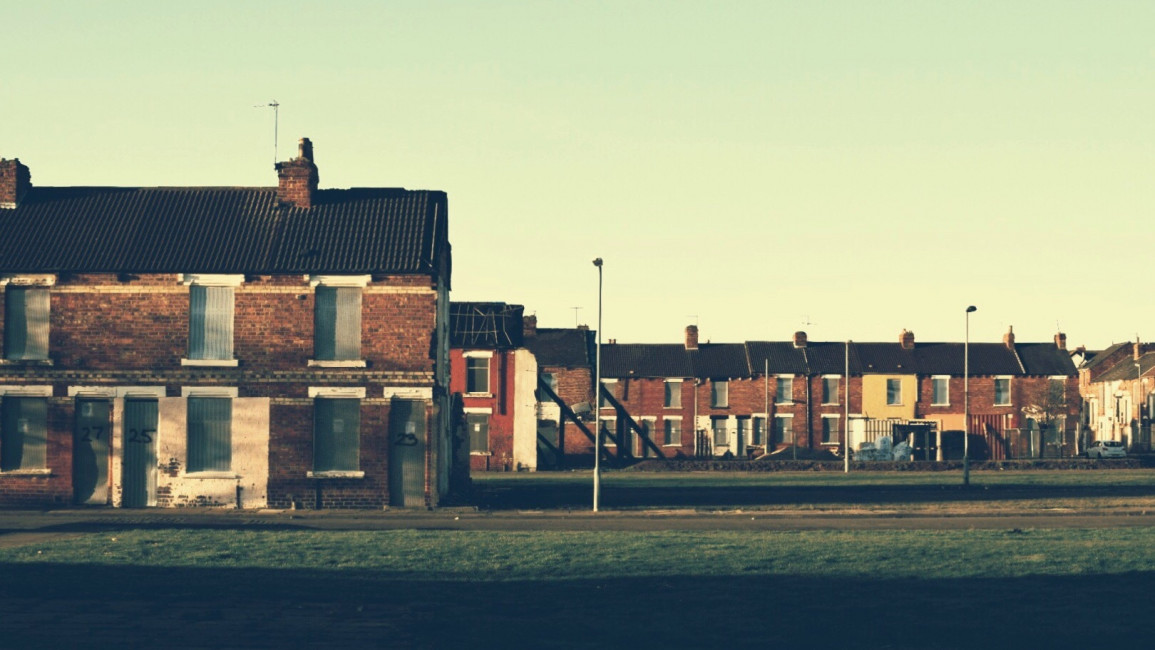UK Labour councils host significantly more refugees than Tory ones
Labour councils provide accommodation for eight times more refugees and asylum seekers than Conservative ones according to Home Office data revealed over the weekend.
The Home Office data showed a disproportionate imbalance between higher numbers of refugees housed in poorer and urban areas, as well as the north of England, compared to lower numbers in richer areas, the countryside, and southern England.
This comes amid concerns that local authorities are not coming forward to resettle Afghan refugees.
CEO of the Refugee Council Enver Solomon told The New Arab: "Councils across the country need to be actively encouraged to come forward to share the allocation more evenly across areas.
"There are 343 local authorities so housing 10,000 evacuated Afghans in half of those would be less than 60 in each council. That should certainly be manageable."
The UK government is pushing for local authorities to permanently resettle Afghan refugees after their evacuation from Taliban-controlled Kabul and 10-day quarantining in hotels. Only around a half to a third of England's councils have come forward so far, according to reports.
The local authority of Parliamentary Under Secretary of State (Minister for Safeguarding and Afghan Resettlement) Victoria Atkins - East Lindsey in Lincolnshire - has supported only one asylum seeker since 2016 and six Syrian refugees from January to March 2020, according to the UK government data.
Three local authorities in UK Home Secretary Priti Patel's parliamentary seat in Essex have never supported more than 10 asylum seekers at any one time until this year from mid-April to June.
The New Arab approached Essex County Council for comment, who responded: "We are working alongside local and national partners to support a number of individuals arriving to the county from Afghanistan. Our aim is to ensure these individuals have access to the support they need while they are in Essex."
In comparison, Labour stronghold Middlesbrough is home to 550 asylum seekers - the highest proportion of any local authority in England.
"What we mustn’t see is the better-off, selfish, smug local authorities continue to do nothing and let their politicians talk a good game but deliver no help, support, mercy or compassion," said the mayor of Middlesbrough Andy Preston to The Guardian.
Around ten thousand Afghan refugees, who have flown to the UK under the Afghan Relocations and Assistance Policy (ARAP) are currently or finishing quarantining in government-managed hotels.
Many do not have basic necessities - such as clothing, toiletries, shoes, sims for their phones - and are reliant on voluntary organisations, according to the Refugee Council.
Although the UK government has promised to provide "the vital support [refugees] need to rebuild their lives", concerns are mounting over the availability of permanent homes for the Afghan communities.
More than 2,000 places have been confirmed, however, the UK Home Office has offered no further confirmation to The New Arab about whether this leaves a deficit of 6,000 without homes or the numbers are much lower.
Reports suggest the UK government is resorting to holiday parks and military barracks to house the Afghan refugees in "bridging accommodation" until a home can be found.
When The New Arab approached the UK Home Office for comment on this story and the data revealed over the weekend, they said: "We do not recognise this analysis. It fails to acknowledge or include asylum seekers who do not require direct support from the Home Office, those who continue to be supported because there is a legal or practical barrier to their return home and those in Initial Accommodation and contingency accommodation following the impact of the global pandemic."



